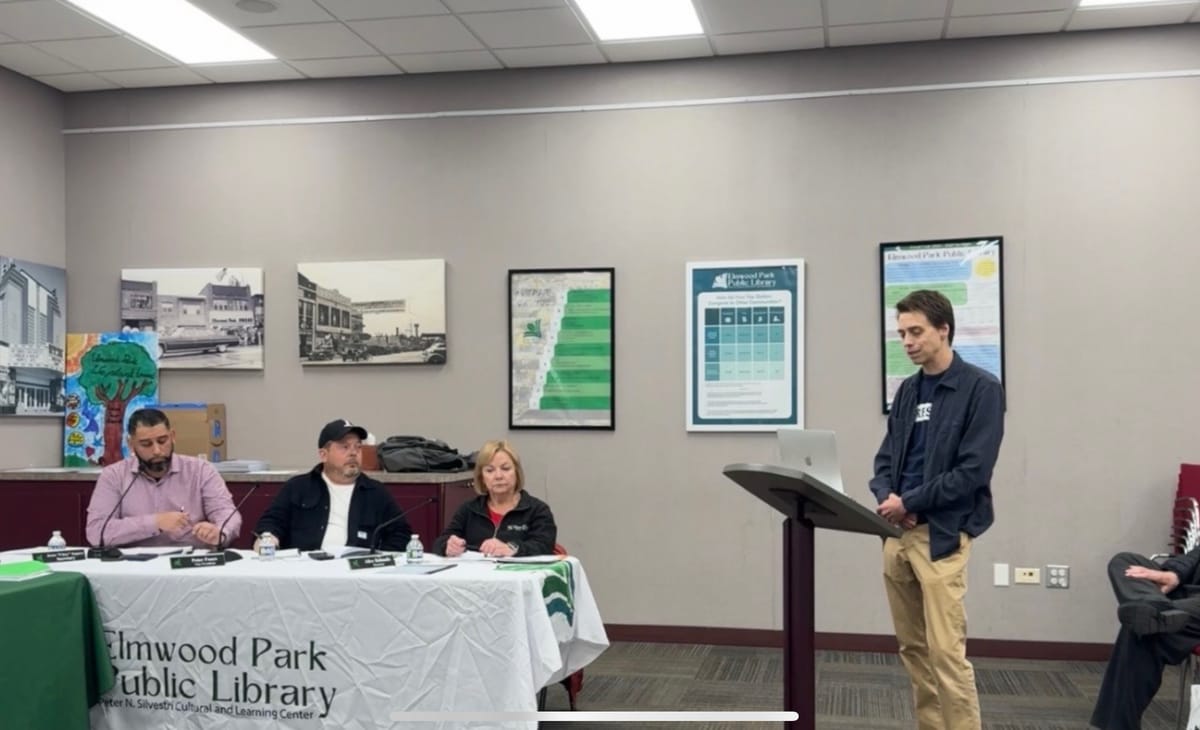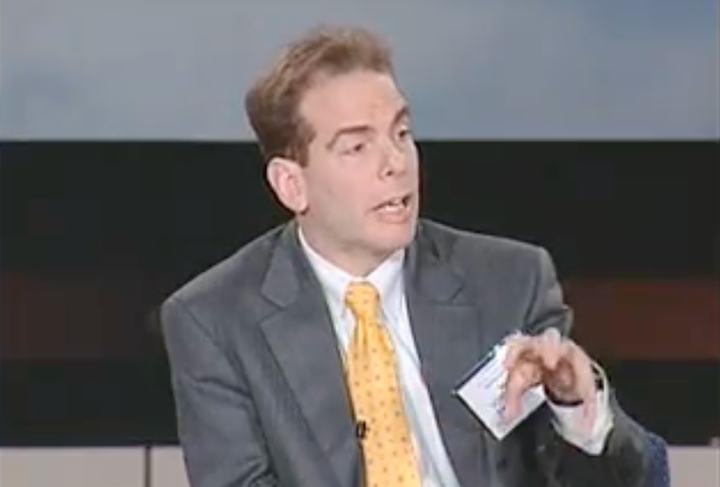The Censorship Battle I’ve Been Fighting Against A Suburban Chicago Library
I have been fighting a suburban Chicago library that has attempted to censor a newsletter that I launched.

Over the past several months, I have been fighting a suburban Chicago library that has attempted to censor a local newsletter that I launched.
In fact, back in July, the Freedom of the Press Foundation's U.S. Press Freedom Tracker logged what was happening as an incident in Illinois.
This fight has distracted me from the work that I typically do on press freedom, whistleblowers, and government secrecy. Now, I am finally able to sit down and share this story with international readers of The Dissenter.
The United States is filled with news deserts, which are defined as communities, “either rural or urban, with limited access to the sort of credible and comprehensive news and information that feeds democracy at the grassroots level.”
One of those communities is the West Chicago suburb where I live, which is known as Elmwood Park. Its population is around 24,000. The village has a newspaper, the Elm Leaves, but it is a prime example of the impact media consolidation has had on local journalism.
The Elm Leaves is owned by the Pioneer Press, which is owned by Nexstar Media—a media corporation that merged with the Tribune Media Group in 2019. It rarely includes reporting on Elmwood Park. Instead, the newspaper features syndicated coverage of various Chicago suburbs that is written by a handful of reporters.
Recognizing the lack of a reliable source for news and information in Elmwood Park, I joined with several residents and launched the Elmwood Park Advocate.
We also reserved a library meeting room to host monthly “Community Conversations,” where residents were invited to talk with us about their shared experiences in the village. Through engagement, we believed our reporting and writing would better reflect life in the neighborhood.
After two “Community Conversations” in June and July, Library Director Michael Consiglio informed the Elmwood Park Advocate that seven or eight people objected to the “process and rationale behind hosting your meetings at the Library.” He then insisted after their opposition that we needed to pay $100 each time that we reserved a meeting room.
The library director maintained that the library’s meeting room policy said only nonprofits with proof of 501c designation from the IRS are eligible to use the room free of charge. However, I obtained records through the Illinois Freedom of Information of Act that show the library never charged “any meeting room use fees since the adoption of the Library’s current Meeting Room Policy and reservation system in 2023.”
Library Director Seeks Power To Police Journalism And Speech
A public body is not allowed to infringe upon or bar a group from broadly exercising their First Amendment rights just because a very small group of hecklers do not like the idea of that group exercising their rights. This is the rule against the “heckler’s veto.”
We met with the library director at the end of July. It was conveyed to us that the opposition to using the meeting room stemmed from our perceived association with individuals who had run for library board trustee positions and lost in April. However, the meeting was cordial, and the library director even said no resident should have to pay for a meeting room because we all pay property taxes. So, we were led to believe we could still use the meeting room in August and September for free.
Stunningly, on September 8, the library director unveiled a new meeting room policy. It was presented at a library board policy committee meeting that would have granted him the authority to police speech—not just inside but also outside of the library.
For example:

This is blatantly unconstitutional. As the American Library Association has outlined, “To restrict speech, a library must show that (1) it has a compelling state interest and (2) the speech restrictions are narrowly drawn to achieve that end.”
The library had no public safety or health reason for trying to restrict speech nor was this provision narrowly drawn. It would have applied to “digital” communications, like articles published by my newsletter.
Attorneys for the library advised the library director to make substantial revisions, and I obtained a draft of the policy before it was revised. The report, which I published on September 30, led a number of residents to write to the library director.
“Didn't we just see this free speech fight play out 2 weeks ago with Jimmy Kimmel? Disney, ABC and their affiliates reversed course quickly once they realized that Americans truly believe and honor free speech as a constitutional right,” one resident wrote to the library director.
The same resident declared, “Free speech is the bedrock of our democracy and politicians, village officials and other community leaders need to uphold it at every chance. That includes allowing community groups the right to use legitimate public facilities, like library rooms, free of charge and without recourse to what they may or may not say during their meetings.”
Faced with a bit of a backlash, the library director disingenuously acted like he had never pursued a new meeting room policy. He told multiple residents, “There is no plan to change the current approved policy.” (Which was false. I obtained a copy of the proposed policy through FOIA and reported on it.)
Another Attempt To Force Us To Pay A Fee (With A Bizarre Twist)
We were allowed to hold our fourth “Community Conversation” on September 20. It had the highest attendance yet, and we discussed immigration.
But on September 29, Library Director Michael Consiglio informed the Elmwood Park Advocate that the library’s attorneys had reviewed the meeting room policy. Only Elmwood Park government agencies and Elmwood Park-based organizations that are recognized by the IRS as 501c nonprofits are “exempt from paying fees.”
“This rule applies to all community clubs, cultural organizations, informal advocacy groups, and booster clubs that are not formally registered as nonprofits,” Consiglio added. We would have to pay $100 if we wished to use the meeting room for another “Community Conversation.”
Bizarrely, on October 2, the library director emailed the newsletter and said, “[I]n the interest of maintaining open communication and making sure that your planned meeting can proceed without disruption, I will personally cover the $100 meeting room fee until the Library Board convenes to review the policy and consider any necessary revisions.”
We neither accepted nor rejected the offer. In my opinion, there was an intimidating coerciveness behind this offer: accept my personal generosity or else your newsletter will not be able to use the library’s main meeting room.
Also, it seemed like if we did not accept the offer the library director and library board president could paint us as difficult and unreasonable. But no one involved or associated with the newsletter was responsible for the combination of developments, which led to the library director suddenly insisting that the library must charge meeting room fees.
The library director “paid” the fee, and we held a fifth “Community Conversation” on October 11. At this gathering, we specifically addressed the fear and anxiety that Immigration and Customs Enforcement (ICE) operations had generated among residents.
A Plea To Respect Our First Amendment Rights
Everything finally came to a head on October 26. After we reserved a room for November 15, Library Director Michael Consiglio denied the newsletter’s request for a room unless we paid $100. The newsletter appealed the decision.
On November 10, I stood before the library board policy committee and presented our appeal.
I urged trustees to interpret “the meeting room policy in a manner that supports the library’s mission and the principle for meeting room use in the Library Bill of Rights.”
The ALA’s Library Bill of Rights, which is part of the policy, says, “Libraries shall make meeting rooms available to groups regardless of the beliefs and affiliations of the group requesting their use or their members.”
Jack Bentley, a community lawyer, submitted a statement on our behalf. “The First Amendment to the Constitution does not only protect the freedom to view, hear, and read library materials. It also protects the freedom for residents to assemble in a meeting room, regardless of their beliefs, affiliations, or speech. That includes the freedom to publish articles about the library without fear of retaliation.”
“To charge the newsletter or any group of residents $100 for meeting room reservations with no apparent budgetary or policy concern backing up that fee is patently violative of your residents’ right to free expression as guaranteed by the First Amendment of the U.S. Constitution,” Bentley further stated.
Our case was compounded by the fact that Library Board President Chris Pesko proposed changing the language of the policy so it was much more clear that the library would charge any group or organization without 501c nonprofit status. Even if our appeal was granted, library board trustees could have immediately nullified the decision.
However, something unexpected happened while the library board was discussing the appeal. Library Board Trustee Peter Fosco urged the trustees to spend some more time considering the fees and comparing the fee structure in the policy to other area libraries. He motioned for a “moratorium” on meeting room fees, and the committee temporarily suspended the fee. (An hour later, the full library board voted to suspend the fee, too.)
By suspending the fee, it allowed the library board to avoid a decision that would have added to brewing resentment over how the library has treated our newsletter. It also meant that our appeal was paused, and that we could host our final “Community Conversation of the year on November 15.
I have no idea where this battle goes next, but it has renewed my sense of purpose as a journalist. Each day I spend several hours drafting articles, collaborating with volunteer staff, submitting FOIA requests, challenging FOIA denials, defending our newsletter, etc.
When the Elmwood Park Advocate launched in late May, it had less than 10 views per day. In September and October, we’ve hit 1,500 views and 2,000 views in a day. Our traffic is up over 26,000 percent in the past 180 days, and the number of subscribers that we have has grown by over 3,000 percent during the same time.
For well over a decade, I have written about press freedom, free speech, censorship, secrecy, and even government accountability. I was part of a groundswell of opposition that helped free WikiLeaks founder Julian Assange and U.S. Army whistleblower Chelsea Manning.
One might think I would stay focused on the national and international issues that were integral to their cases (and I am still committed to these issues). But this has rekindled my passion for journalism. I see traffic spikes on articles and engage with readers in a way that simply does not happen with The Dissenter anymore.
Leading a local newsletter feels incredibly important and impactful, like we're on the frontlines of a fight for access to news and information that every community should be waging right now.




Comments ()